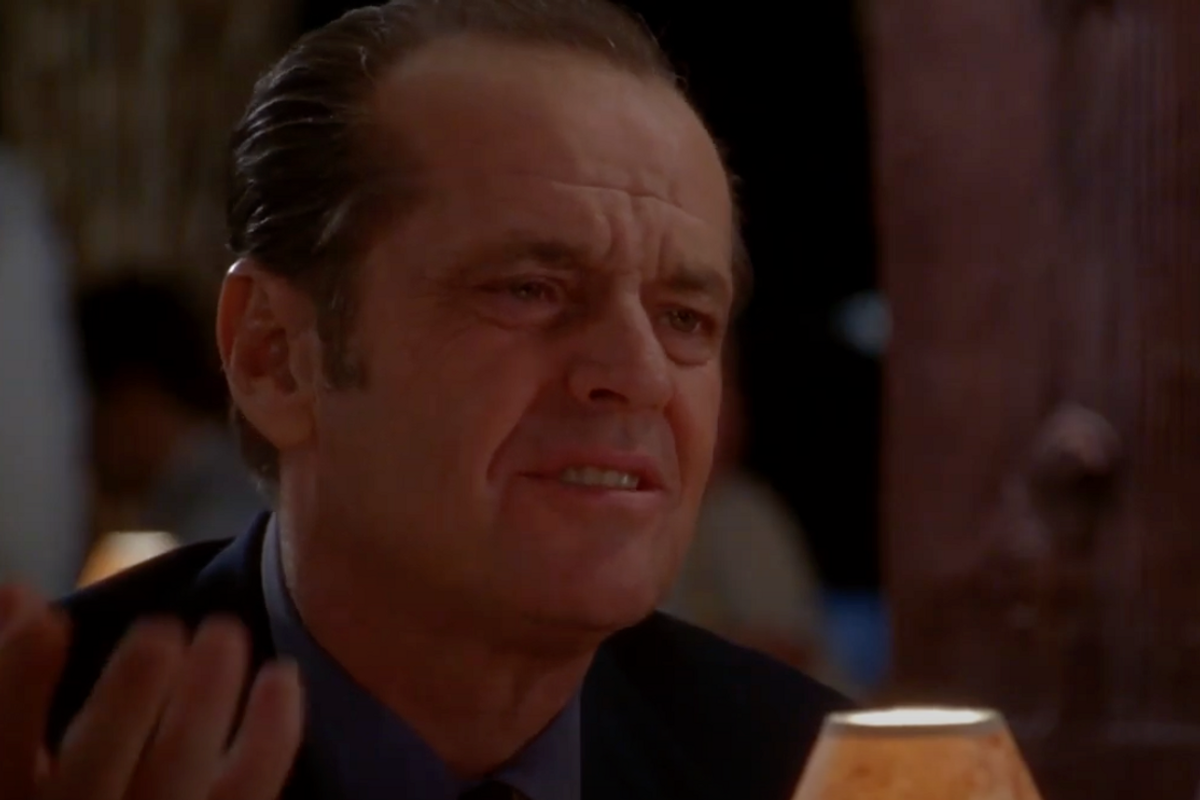I'm pleading for pop culture to stop playing OCD for laughs
Perhaps the time has come to re-evaluate how we portray OCD in films and TV series.

Melvin Udall in As Good as it Gets
Official website Iannis is an award-winning writer and filmmaker. His romantic dramedy script "Only Loves Matters" won a Gold Award for Original Screenplay from the Hollywood Gold Awards, during the film’s successful festival run, while his noir thriller screenplay “Samantha Rutledge P.I, A Killer Case” was a Finalist at the Manhattan Film Festival and his romantic action comedy script “Valentina, Relationship Killer” won Best Unproduced Screenplay at the Berlin International Art Film Festival. Prior to that, his dramedy screenplay "Mary and Dionysus" was a Semi-Finalist at the Shore Scripts Feature Screenplay Competition, and his short film "Headz" won a Gold Lion Award at the London Film Awards. When not writing screenplays or making films, he scribes short stories and comic books. He’s a sucker for rakomelo, dark chocolate, and honey. Finally, he's a firm believer that humankind was at its best during the thousands of years of hunting and gathering but knows that, unfortunately, he wouldn't last two days alone in the wilderness.
I've had Obsessive Compulsive Disorder (OCD) since I was a child and I'm now in my early 40s. For all of this time, I have felt like I should be apologizing for it.
It's like this invisible phantom that engulfs one in fear and doubt and brings dark clouds to a shiny day at the park. The sense of guilt has always followed me due to the disorder being a part of my everyday life. For whenever I would try to talk about it to a friend or a relative, to explain a certain lifestyle choice, to touch upon its debilitating nature, I've often been looked at funny in return.
There've been other times still when I've been flat out accused of simply making excuses and of just being lazy. Lastly, there've been also situations, on more than one occasion, when I was told the following by a friend or acquaintance: "Oh, yeah, ha, I'm a bit OCD too, sometimes I have to double-check that I've locked the door."
My fellow OCD afflicts out there, tell me that doesn't infuriate you big time. For the record, unless you check that door desperately, repeatedly and then some, for fear that absolute tragedy will befall you and your loved ones if you don't, then you do not have OCD.
I have recently concluded that this sense of dismissal, of slight irreverence, is due to the way that OCD is presented in popular culture. Barring some exceptions, of course, most of the time there's a slight cavalier, played for laughs quality to the depiction of characters with the disorder in films or TV series.
Sure, characters such as Melvin Udall in As Good as it Gets and Adrian Monk in Monk play at being the suffering protagonists, (and quite well at that), but their affliction is largely employed into the service of humour, the emphasis always falling on the comedy. Further notable examples include the character of Sheldon Cooper in The Big Bang Theory, Kevin Casey in Scrubs and Monica Geller in Friends. All these sitcoms adding, unintentionally, to the trivialisation of this condition.
Take the last season of the excellent Fargo series as a further, and more recent, example. It features the prominent character of Odis Weff played exquisitely by actor Jack Huston, (who also had a memorable role in Boardwalk Empire). The portrait of the debilitating nature of the character's OCD is handled truly well, yet even this example isn't spared from going down, albeit briefly, the comic relief route. This is in no way a criticism of the series itself, of which I'm a huge fan, and I urge anyone to watch it if they haven't so already.
Now, don't misunderstand me, I'm not saying that there shouldn't be a comical approach in the depiction of OCD in the world of entertainment. Far from it, after all, laughter is therapy as they say, and I'm not a fan of restrictions of expression when it comes to creativity, either. I'm simply stating that there should be more of the other side of the coin as well, one that does not include the humour. More films like The Aviator, for example, to balance things out. We should become more mindful of the suffering, the anguish and the struggle so that we as a society can have a more complete idea of what living with this disorder truly means. Of course, what also doesn't help is that it's quite difficult to display a full picture of the suffering as most of the time, the fear, the strife, the struggle, they all happen in the mind. Something which doesn't translate to the screen as well, thus it's understandable that there's a story emphasis on elements of the disorder such as repetition, symmetry, hoarding and germphobia, all of which are more visual in interpretation and lend themselves well to mockery. None the less, an effort should be made to lessen the caricature-like display of OCD in pop culture. If anything, we have seen enough of that already; it might be time now to move on.
Like all mental disorders, a level of understanding needs to be applied to obsessive-compulsive disorder. It can be a misunderstood condition and a person with it can suffer in silence and in hiding. So - understanding helps, and so can cognitive behavioral therapy. There's medication, and meditation too. Lastly, there's something else we should include, for, if OCD is a fear-based illness, then the key to dealing with it lies in the opposite of that, and that is none other than love.


